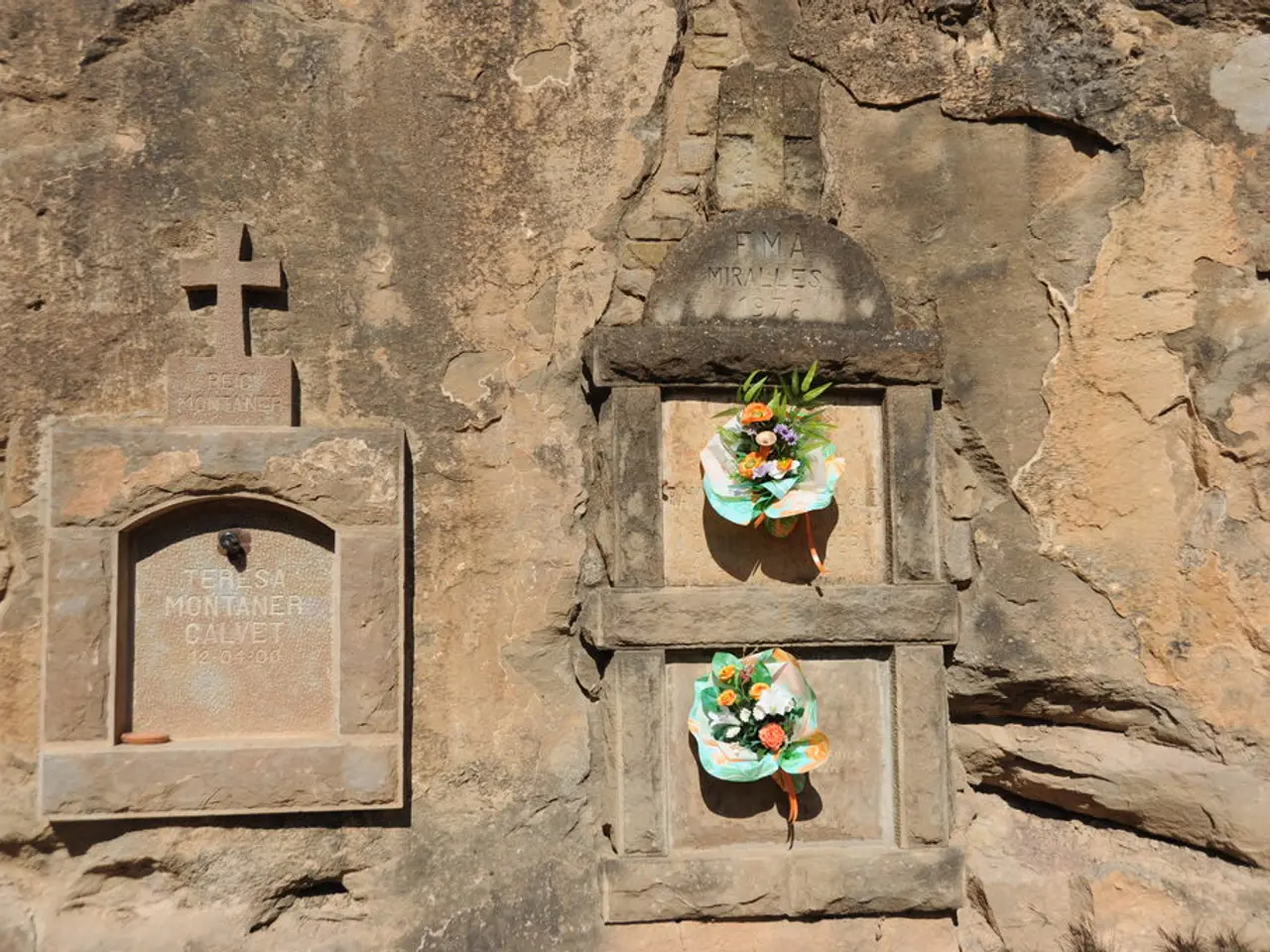Emperor of Japan Expresses Deep Regret Eight Decades After World War II Capitulation - Eight decades after Japan surrendered in World War I, the Emperor expresses deep remorse.
In the heart of Tokyo lies the Yasukuni Shrine, a place of remembrance for over 2.5 million Japanese war dead since the 19th century. However, the shrine's unique honouring of Class-A World War II war criminals alongside regular war dead has made it a highly sensitive and symbolic issue in East Asian international relations.
Recently, Japanese Prime Minister Shigeru Ishiba made a ritual offering at the Yasukuni Shrine in his capacity as president of the ruling Liberal Democratic Party. This move, while not a personal visit, has sparked controversy and diplomatic criticism, particularly from China and South Korea.
The historical significance of the Yasukuni Shrine lies in its enshrinement of war criminals alongside regular war dead, symbolizing an unresolved narrative about Japan's militaristic past and wartime aggression. Given Japan's aggressive military actions and colonization policies before and during World War II, visits to Yasukuni are often seen abroad as a refusal to atone fully for wartime atrocities and an implied glorification of militarism.
Diplomatically, visits or official recognition of the shrine regularly draw strong rebukes from China and South Korea. These countries view such actions as provocations that undermine trust and reconciliation efforts. Chinese officials have called such actions a “blatant provocation against historical justice,” urging Japan to reflect deeply on its history of aggression. South Korea has expressed "deep disappointment and regret" at such visits, emphasizing the persistent tension over historical memory and regional politics.
Prime Minister Ishiba's ritual offering at Yasukuni reflects a cautious political stance amidst ongoing tensions. While he has refrained from a personal visit to the shrine, his offering marks a middle ground approach that aims to honour Japan’s fallen soldiers without igniting diplomatic fallout. However, this move has drawn criticism from neighbouring countries and highlights the continuing domestic conflict between political factions who want to honour Japan’s fallen soldiers and those mindful of diplomatic fallout.
In summary, the Yasukuni Shrine visit continues to be one of the most sensitive and symbolic issues in East Asian international relations, relating to wartime history remembrance. The recent ritual offering by Prime Minister Shigeru Ishiba at the Yasukuni Shrine has sparked diplomatic tensions, underscoring the complexity of Japan's historical legacy and its impact on contemporary East Asian relations.
Half a century after the world war, the Emperor of Japan, speaking with a deeper regret, addressed the nation for the first time about Japan's capitulation in the world war. In the realm of politics and general news, Shigeru Ishiba, the Prime Minister of Japan, has faced criticism from neighbouring countries, including China and South Korea, due to his ritual offering at the Yasukuni Shrine.






